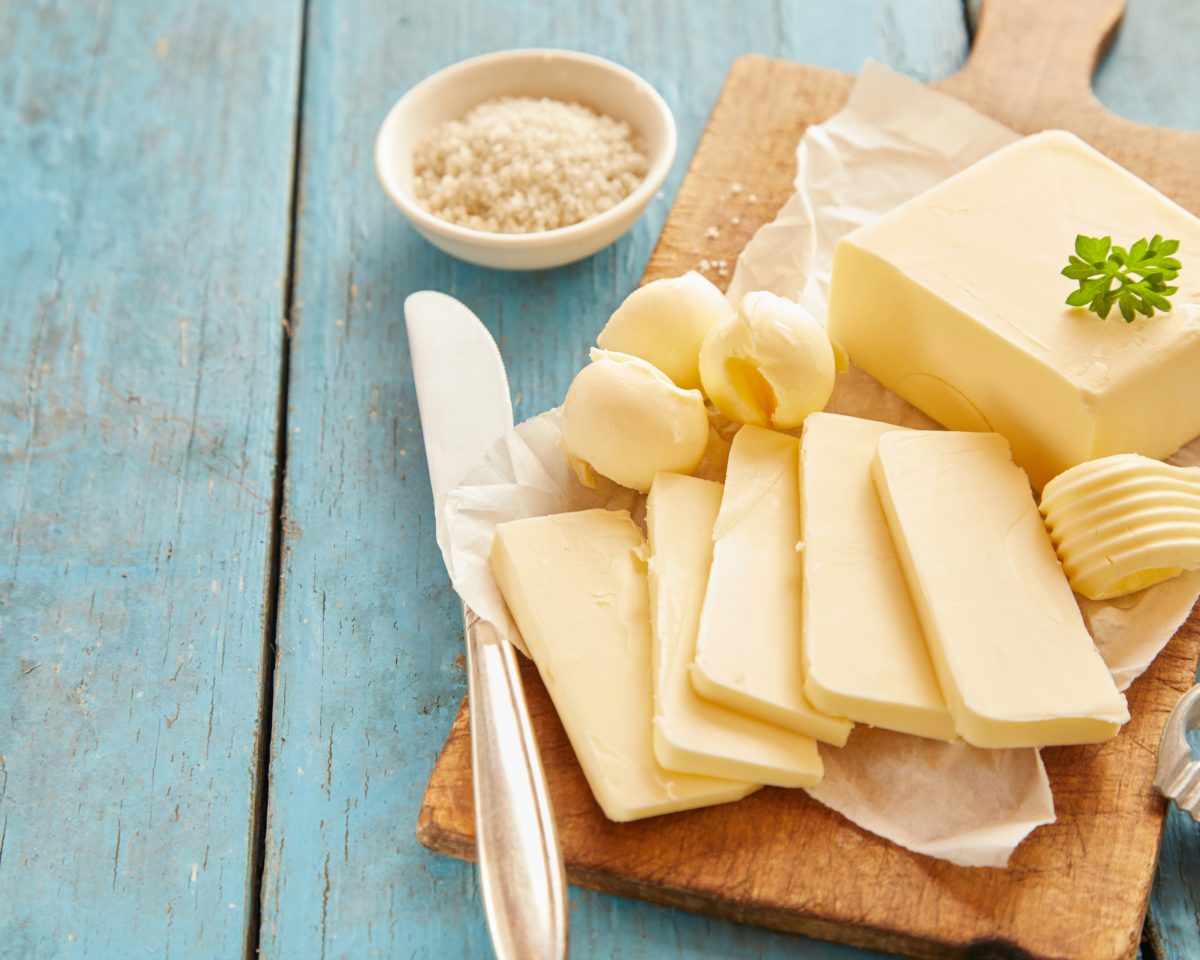Is butter low FODMAP? trusted dietitian guide
- Low FODMAP diet
You may assume that butter is high in lactose and therefore high FODMAP. This might lead to restricting butter in your diet if you have IBS.
This post will explain how butter is actually low FODMAP. We will also discuss what other components of butter could trigger IBS symptoms. If this is the case for you, you will find some alternatives to butter in this post.

Does butter contain lactose?
Butter contains trace amounts of lactose.
Traditional butter is made from cow’s milk. Lactose is naturally found in cow’s milk and therefore in most dairy products such as milk and yoghurt.
During the production of butter, the milk is separated from the cream (2). This leaves a mixture, which is predominantly fat and lower in lactose.
Due to this process, butter contains less than 1g of lactose per 100g (1). This is low in lactose which even most people with lactose intolerance should be able tolerate.
Does butter contain FODMAPs?
As mentioned above, butter is low in lactose and therefore low FODMAP.
Lactose is a disaccharide and therefore falls under the ‘D’ in FODMAP. However, Monash considers a dairy product as low FODMAP if it contains 1g or less of lactose (3).
You can therefore freely enjoy butter on the low FODMAP diet.
Why else might butter trigger your IBS symptoms?
Although butter does not contain enough lactose to be classed as high FODMAP, it may still trigger your IBS symptoms.
100g of butter contains 81g of fat, making it a high-fat product. Some people find that high fat foods can trigger their IBS symptoms (5, 6).
Fat is linked to slowing down gut motility, which means food stays in the digestive system for longer (7). As a result, gas transport and digestion of food is reduced which can increase bloating and abdominal pain (10).
Where fat is poorly digested or absorbed, it can draw water into the colon, resulting in diarrhoea (8).
Some people with IBS may also find that fat intake can stimulate a pain response (cramps and abdominal pain) or urgency to go to the toilet (9, 6).
What about plant butters?
You may be familiar with plant based alternatives to butter if you follow a vegan diet or have been making some plant-based swaps.
Plant-based butters do not contain lactose, however this does not mean they are necessarily FODMAP free.
This section will discuss the FODMAP content of plant-based butters.
Common plant-based butters include:
Margarine
Vegan margarine is made using a blend of vegetable oils, such as rapeseed, palm and linseed and is therefore FODMAP free.
Olive-oil spread
Olives contain trace amounts of FODMAPs according to Monash.
Olive-oil based spread can be used as a great butter alternative, providing a similar texture and taste.
Coconut
Coconut butters are either made using flesh of a coconut or dried coconut and using a high powered blender to achieve the consistency of butter.
You can enjoy larger quantities if using coconut butter that is made using fresh coconut flesh. If made using dried coconut, then there is higher sorbitol content. You can check the Monash app for low FODMAP servings of each form of coconut to use as a guide to trial quantities.
You can also substitute butter for coconut oil, for example in baking. Coconut oil is low FODMAP.
Nut Butters
Nut butters are another popular alternative to butter that can be used as a spread or in baking. They are a great source of fibre, protein and healthy fats.
- Peanut butter is FODMAP free
- Almond butter can also be enjoyed in a serving size of 1 tablespoon (4).
Not all nut butters have been tested by Monash and they will differ in their FODMAP content. This will depend on which nuts have been used and the FODMAP content of them.
We recommend trying nut butters that are made using low FODMAP nuts and that have few added ingredients. This is to reduce the risk of added ingredients that are adding a source of FODMAPs.
Summary
Butter contains trace amounts of lactose and is therefore low FODMAP. Other factors such as the fat content could be more of a trigger for your IBS symptoms than the FODMAP content.
There are many plant-based alternatives to butter that are also low FODMAP. However, some of these, such as coconut-based or nut butters, should be checked or trialled in smaller quantities to test your tolerance first.
Written by Camilla Donaldson BSc Hons Nutrition reviewed by Beth Willson Specialist Dietitian BSc Hons